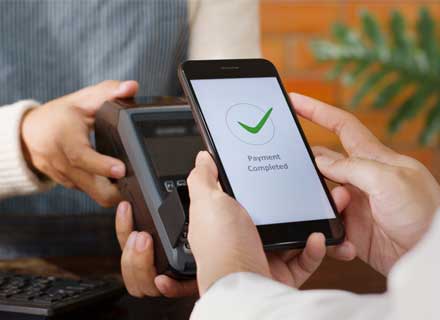Compared to the same month in 2022, Saudi Arabia’s point-of-sale terminal spending in August 2023 has climbed by 10% to SR54.6 billion (USD 14.56 billion).
The Financial Development Programme’s primary goal, according to the Saudi Central Bank, commonly known as SAMA, is to promote digital payment alternatives to help the Kingdom transition to non-cash payments at a rate of 70% by 2025.
In August 2023, mobile phone payments increased by 18% to SR19.5 billion from SR16.6 billion during the same month of the previous year.
On the other hand, card sales were SR31.7 billion in August, an increase of SR2 billion over the corresponding month in 2016.
When compared to the same month in 2022, MADA card usage for online purchases increased by 27.4% to SR14.4 billion in August.
The Kingdom promotes the adoption of electronic payment mechanisms, such as MADA cards, to move toward a cashless society.
MADA cards are frequently used to receive payments from the government, such as salary, social benefits, and subsidies. The government payments’ digitisation has increased card usage and sales value even more.
MADA cards are frequently used at ATMs for balance cheques and cash withdrawals. The use of MADA cards grows together with the number of ATMs.
However, according to SAMA records, the number of automated teller machines decreased by 274 from August 2022 to that month, indicating a downward trend over the previous six months.
Although the rise in MADA card utility and the decrease in ATMs may appear to be at odds with one another, many developments in the nation’s financial landscape can explain the trend.
The use of MADA cards may be rising as more people and businesses switch to electronic payments like online shopping, bill paying, and fund transfers, which eliminates the need for manual ATM withdrawals.
Another explanation might be the widespread use of contactless payment technology, which enables users of MADA cards to conduct speedy and secure transactions without having to physically enter their cards into a card reader.
This feature has gained popularity for making low-value purchases, which lessens the need for ATMs.
While there may be fewer ATMs, the overall trend indicates a shift toward card-based and digital payments, with Saudis becoming more accustomed to electronic transactions and using teller machines for cash withdrawals less frequently.
The Kingdom’s roadmap of transforming itself into a cashless society got a massive boost in September 2023 as Mastercard and Fintech Saudi signed an agreement to boost a core part of the Gulf state’s high-tech vision of the future.
The deal supports Saudi Arabia’s ambitious ‘Vision 2030’ socio-economic transformation strategy, as the Kingdom sees its fintech sector as one of the major non-oil growth drivers.
According to the Fintech Saudi report for the financial year 2021-22, there were 147 active fintech ventures in Saudi Arabia. While this tally is expected to go up further, Nezar A Alhaidar, managing director at Fintech Saudi, told the ComputerWeekly.com that MasterCard deal would be a game changer for the country as the world’s second-largest payment-processing venture would provide the Saudi fintechs with a scale of resources not available within the Kingdom.
Fintech Saudi, launched by the Saudi Central Bank and the Capital Market Authority, has a roadmap to support 525 fintech startups in the Kingdom by 2030, under the ‘Vision 2030’ strategy.
Talking about the Mastercard-Fintech Saudi deal, Alhaidar remarked, “We can help fintech companies to develop innovative payment methods and digital services that enhance the rapidly expanding sector in the Kingdom by utilising Mastercard’s knowledge and network.”
Adam Jones, country general manager in the Middle East at Mastercard, commented, “Saudi Arabia is becoming a global hub of tech and SME innovation, with Vision 2030 and the Kingdom’s commitment to developing a cashless economy serving as the foundation of this success.”
“Our partnership with Fintech Saudi aligns with this goal and will enable us to better support new and established startups by delivering secure, innovative and diverse payment solutions and digital services,” added Jones.
Fintech Saudi has already established partnerships with global tech and finance biggies like Accenture, Visa and Amazon Web Services, in order to turn the Kingdom into a major fintech hub.

